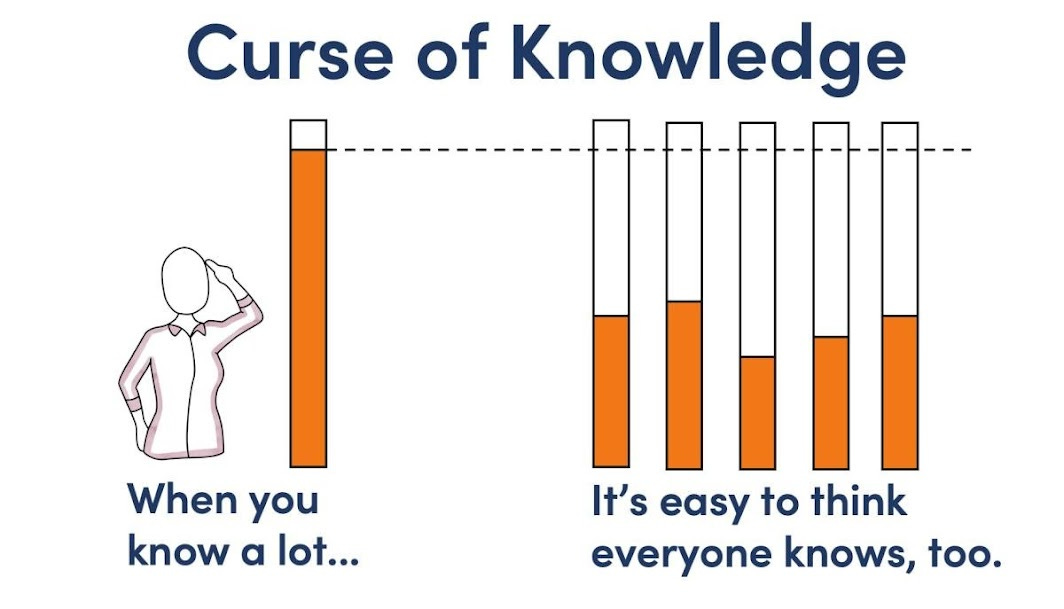6 Mental Shifts To Become A 6-Figure Course Creator
Launch your first online course with more ease (and more sales)

Our new online program, Mini-Course Accelerator, is now live. 🎉
In Mini-Course Accelerator, you’ll learn the exact system we used to build, launch, and automate profitable mini-courses (and generate over $1M in sales), so you can build your own income-generating mini-course.
Over the past few years, I’ve built and launched 10+ online mini-courses (generating $300,000+) in the productivity niche.
Out of all those courses, creating my first one was by far the hardest.
I had to overcome some huge mental roadblocks to finally start building my first course—and make my first sales.
That’s why, in this article, I'll share 6 essential mindset shifts that helped me become a six-figure course creator, so you can launch your first course with more ease (and more sales).
Let's dive straight in.
#1: Your Knowledge Is Worth Paying For
One of the biggest things holding course creators back is imposter syndrome—that voice whispering, "Who am I to teach this? Why would anyone pay me?"
Listen, I get it. I felt the same way when I launched my first course.
But here's what I've learned: most people dramatically underestimate how valuable their knowledge really is.
Think about something you're good at. Because you already know it, it probably feels obvious or common sense to you.
That’s known as the ‘curse of knowledge’. Once we know something, we assume everyone else must know it too.
There are countless people struggling with the very things you know inside-out, and they’ll happily pay you to save themselves months (or even years) of trial and error.
And no, you don’t need to have fancy degrees or credentials before you start teaching your knowledge to someone else.
When I launched my bestselling mini-course, Procrastination Antidote, I didn’t have any official degrees in productivity, psychology, or neuroscience.
But I did know what I was talking about because I had actually overcome the problem of chronic procrastination myself.
Truth is, your audience cares far more about how well you can help them go from A to B than all the fancy credentials and certifications you have (or don’t have).
#2: Your Course Topic Doesn't Have To Be Unique
Another big mental block new course creators have is thinking their course idea needs to be completely unique.
But if many courses on the same topic already exist, that isn’t a problem—it’s an opportunity. It’s proof that there's real demand for your course.
Unique doesn't automatically mean profitable. Usually, if no one else is offering courses on your topic, it's a red flag—it often means there simply isn't much demand.
For example, I’ve generated multiple six figures in course sales in one of the most saturated niches you can think of: productivity.
There are a ton of productivity courses out there already. Nevertheless, people were still lining up to buy my courses because:
Consistently being productive is a huge problem for a lot of people (which means there’s a lot of demand for this course topic)
My audience resonated with my content and, therefore, wanted to buy my productivity courses (instead of those of other productivity experts)
The key to standing out isn't to come up with something completely unique.
Your personality, your unique experiences, your teaching style—that’s what differentiates you from other course creators.
#3: You Don't Need To Be A Tech Wizard
Ten years ago, creating an online course was complicated. You needed expensive equipment, custom-built platforms, and technical expertise.
Thankfully, those days are long gone. Today, creating and launching a course is affordable and requires hardly any tech skills.
Here’s my entire (beginner-friendly) tech stack:
Creating Slides: Canva (super simple, beautiful designs, no graphic skills needed)
Video Recording: Loom (easy screen recordings, video trimming built-in)
Course Hosting & Sales: Thinkific or Teachable (drag-and-drop course builders, payment integration, easy sales page builder)
These tools are specifically designed so that anyone can use them (even if you don’t consider yourself to be a ‘tech’ person).
#4: You Don't Need A Large Audience Before You Build A Course
I've seen creators with just a few hundred followers earn thousands of dollars from their courses.
That’s because of two key things:
They deeply understand their audience: They know exactly what their audience struggles with, and they create a course their audience truly needs and wants.
Their audience is small, but engaged: An engaged audience that trusts you and resonates with your message is far more valuable than a large, disengaged audience.
Don’t obsess over follower count.
Instead, focus on building trust with your audience. When you consistently deliver value to people, they will be excited to buy your course.
Even a small audience can be very profitable when they genuinely know, like, and trust you.
#5: Your Course Doesn’t Have To Be Huge
Many aspiring course creators think their course has to be super long to be valuable, but that’s not true.
People don't buy courses because of how many hours of content they get. They buy courses to solve a specific, painful problem or achieve a desired outcome.
And if your course can do that faster than other courses, that’s worth paying more for (because now you save me time and help me get the result I’m after).
This is why I love mini-courses.
Mini-courses usually take just 1–3 hours to complete (instead of having to go through 10—20 hours of video lessons).
Statistics show that traditional courses have an average completion rate of only 10%, while mini-courses average a 50% completion rate.
That’s no surprise. As it’s a shorter course, it’s more actionable.
Because it’s more actionable, your students actually complete it and get tangible results from your course.
(And when your students get results from your course, it makes them want to buy more of what you have to offer.)
My best-selling mini-course Procrastination Antidote is just two hours long, but it generated over $60,000 in revenue, with hundreds of happy customers.
Rather than overloading my students with dozens of hours of information, I designed this course to be actionable and easy to complete.
This made them more motivated to follow the course and take action on the lessons, which led to hundreds of positive reviews.
All in all, your course doesn’t have to be huge to be valuable. In fact, the more efficiently you can help your student go from A to B, the better.
#6: You Don't Need A Lot Of Time To Create A Course
Another common roadblock that keeps people from creating their first course is that they think it takes months to create.
If you're building a massive 10–20 hour course, sure, that takes a lot of time. But mini-courses can be built much faster.
You can literally go from first idea to finished course in just 2 - 3 weeks, after which you have a digital product that will generate income for years into the future.
Here’s what your 2-week course creation plan can look like:
Day 1–2: Brainstorm your course topic & outline your course
Day 2–5: Create slides & scripts (use Canva & ChatGPT to speed things up)
Day 5–10: Record & edit your lessons using Loom
Day 11–12: Upload to Thinkific, Teachable, or Gumroad
Day 13–14: Create your sales page (also on Thinkific, Teachable, or Gumroad)
Of course, when it’s your first time creating a course, it will take a bit of practice with each of these steps (just like any other skill you try for the first time).
But with every mini-course you create, it gets easier and easier.
Watch the replay now and get started building your own profitable mini-course today.
Want the step-by-step system to build, launch, and automate your own income-generating mini-course? Check out Mini-Course Accelerator now before the deadline ends.





Excellent overview Jari. Thanks for the encouragement. I'm going to set up my first mini-course using these ideas.
Very useful, thank you!